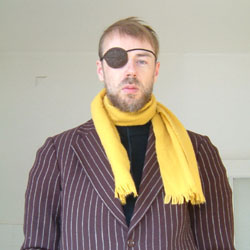A Quote by Lev Grossman
Becoming an author changes your attitude too. Once you see where books come from, and how they're made, they never seem quite as sacred again.
Related Quotes
Among other things, [books by Bruce Doyle III and Mike Hernacki] explain the importance of the "winning attitude" I have been urged to adopt: a positive attitude "attracts" or "fulfils", depending on which author's weird science you go with, postiive results, with little or no action on your part required. Herein, too, lies the answer to the question I once posed ...: would it be enough just to fake a winning attitude? No way, according to Doyle.
How far we all come. How far we all come away from ourselves. So far, so much between, you can never go home again. You can go home, it's good to go home, but you never really get all the way home again in your life.
...
whatever it was and however good it was, it wasn't what you once had been, and had lost, and could never have again, and once in a while, once in a long time, you remembered, and knew how far you were away, and it hit you hard enough, that little while it lasted, to break your heart.
The writer marks the changes he wants to make, while a proofreader also goes through the galley, checking it page-by-page against the manuscript. Once all these changes are identified, a second-pass proof is made, and this, too, gets sent to the author and the proofreader, and the process begins anew.
On the whole, it bums me out that lyrics seem to be written as afterthoughts nowadays. Not sure why this is, but hopefully things will come around again and bands will once again want to "communicate" "ideas" with their audience, and not just content themselves with providing attitude and atmosphere with clichés on top.
Of course all life is a process of breaking down, but the blows that do the dramatic side of the work-- the big sudden blows that come, or seem to come, from outside-- the ones you remember and blame things on and, in moments of weakness, tell your friends about, don't show their effect all at once. There is another sort of blow that comes from within-that you don't feel until it's too late to do anything about it, until you realize with finality that in some regard you will never be as good a man again.
Be grateful simply for being alive. When you are grateful for life, pure and simple, your life becomes one you can be grateful for. That may strike you as circular or even backward logic, but your attitude really does have an effect on how things work out. When you can't change your life any other way, you can still change your attitude. When you do, your life changes. You find more chances to love, and you will be surprised to see how much more love is returned to you.
Franz Kafka once said that happiness consists in having an ideal and not progressing towards it. If you did progress towards it, you'd be unhappy because you'd never be able to reach it. You can incrementally improve your life, but you never quite experience the glamour. You never quite get to your utopia, or whatever it is. And once you realize that you can be quite Buddhist about it, and say, "Well, okay, I'm just going to keep detached from it all."
The iPod is clearly a tipping point (and I'm not quite sure it is a wholly positive development), because it is a revolution in the way that we consume creative property, which I would call art. It has radically changed the relationship between the artist and the audience, how money changes hands, and how much money changes hands. Music was the first, and books are coming next. The Kindle or some form of electronic book is clearly inevitable, and it will massively reshape how books are sold, who pays for them, and how they're consumed. It is going to be really fascinating.
Never forget that you are one of a kind. Never forget that if there weren't any need for you in all your uniqueness to be on this earth, you wouldn't be here in the first place. And never forget, no matter how overwhelming life's challenges and problems seem to be, that one person can make a difference in the world. In fact, it is always because of one person that all the changes that matter in the world come about. So be that one person.





































